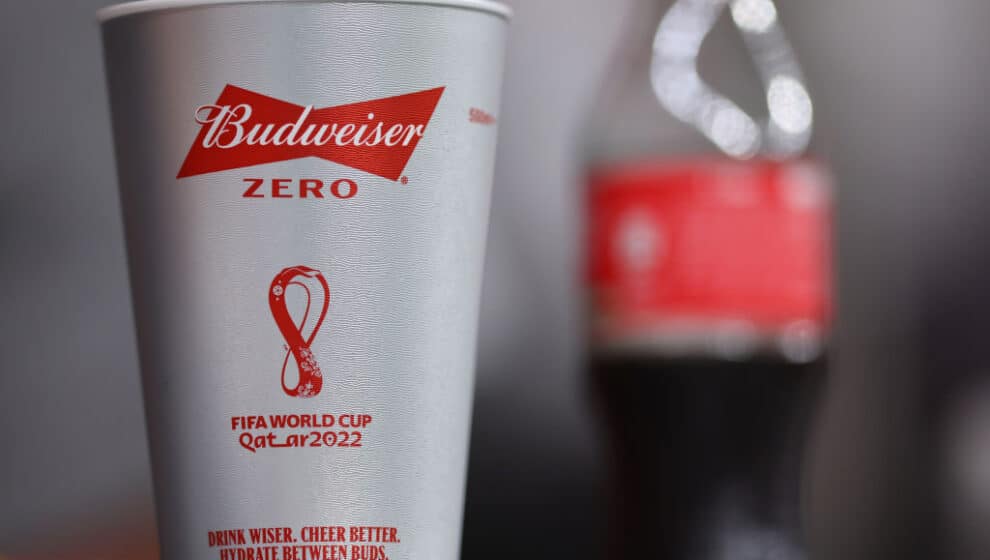The day before FIFA’s World Cup began, the government of host country Qatar banned alcohol sales in stadiums—shocking lead beer sponsor Budweiser, which successfully revamped its marketing plan.
Key Details
- As the official World Cup beer sponsor for the last 36 years, the alcohol ban put beer-maker Budweiser in a difficult position.
- The last-minute decision threw Budweiser’s plans into disarray as years of preparation and planning fell apart overnight.
- A since-deleted tweet from the company simply says… “Well, this is awkward.”
- But Budweiser officials were not to be deterred and found creative solutions to stay relevant during the games without breaking any of the rules.
Why it’s news
The prohibition of alcohol in the stadiums surprised Budweiser officials, but they quickly rebounded with a plan. The company announced that the winning team would receive hundreds of thousands of beers previously set aside for sale at the tournaments.
Budweiser was able to sell its products in approved areas of Qatar and retained its deals with pubs and restaurants in other countries where fans would be watching the games.
But beer sales weren’t the only thing Budweiser was looking to gain at the tournament—advertising played a massive role. Even without the beer sales, Budweiser could still play ads throughout the stadium, and the whole ordeal brought national attention to the company.
Fans inside the stadium could still buy Budweiser products as the company stocked its concessions with Bud Zero, an alcohol-free beverage.
Despite attempts to recoup losses, the sudden ban on alcohol is still a loss for Budweiser. The company reportedly paid nearly $75 million to gain exclusive beer rights during the game events. That’s in addition to another approximately $5 million spent to produce, ship, and store enough beer to serve the expected millions that attended the games, The New York Times reports.
While Budweiser did not publicly disclose the actual amount spent in preparation for the World Cup, Qatar does not bottle or sell beer locally, meaning that the company had to establish an entirely new infrastructure in advance of the games.

